
Experts share updated results on investigational hematologic oncology regimens that they presented at the 2025 ASH Meeting.

Your AI-Trained Oncology Knowledge Connection!


Experts share updated results on investigational hematologic oncology regimens that they presented at the 2025 ASH Meeting.
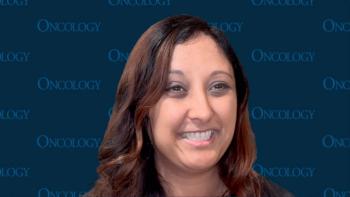
Current FDA expectations may allow patients to return to their community physicians at 2 weeks after administration of anitocabtagene autoleucel.

Based on its mechanism of action, anito-cel may cause fewer instances of cytokine release syndrome and delayed toxicities vs other therapies.
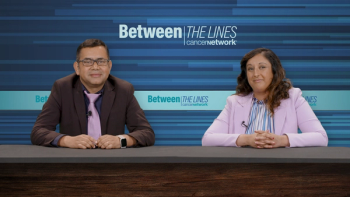
Panelists discuss how looking ahead, key takeaways from the CARTITUDE-4 study underscore the transformative potential of ciltacabtagene autoleucel in managing lenalidomide-refractory multiple myeloma, highlighting its efficacy, safety, and implications for future treatment strategies.

Panelists discuss how the safety data from the long-term CARTITUDE-4 update demonstrate a manageable adverse event profile for ciltacabtagene autoleucel, supporting its continued use in patients with lenalidomide-refractory multiple myeloma.

Panelists discuss how data from the long-term CARTITUDE-4 update reveal a notable rate of minimal residual disease (MRD) negativity with ciltacabtagene autoleucel, emphasizing its potential to enhance long-term outcomes in patients with lenalidomide-refractory multiple myeloma.

Panelists discuss how data from the long-term update from CARTITUDE-4 reveal impressive overall response rates (ORRs) and duration of response (DOR) for ciltacabtagene autoleucel, reinforcing its effectiveness in treating lenalidomide-refractory multiple myeloma.

Panelists discuss how data from the long-term CARTITUDE-4 study update in multiple myeloma (MM) highlight the sustained efficacy and safety of ciltacabtagene autoleucel, reinforcing its role as a promising treatment option for patients with lenalidomide-refractory disease.

Panelists discuss how the CARTITUDE-4 study data provide a comprehensive overview of its design, baseline characteristics, and efficacy outcomes, highlighting the potential of ciltacabtagene autoleucel in improving treatment results for patients with lenalidomide-refractory multiple myeloma.

Panelists discuss how chimeric antigen receptor (CAR) -T-cell therapy has transformed the treatment landscape for relapsed/refractory multiple myeloma (R/R MM), demonstrating remarkable efficacy and offering new hope for patients with limited therapeutic options.

Experts from Mayo Clinic and The University of Texas MD Anderson Cancer Center discuss results from multiple myeloma trials presented at the 2023 American Society of Clinical Oncology Annual Meeting and how they may apply to clinical practice.

A Satellite Sessions program panel at the University of Texas MD Anderson Cancer Center discusses topics in multiple myeloma including the selection of triplet vs quadruplet treatment regimens and optimizing outcomes in the maintenance setting.
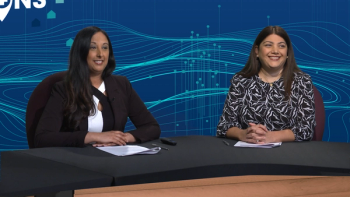
Closing out their discussion on multiple myeloma, expert panelists share expectations and hopes for the future treatment paradigm.
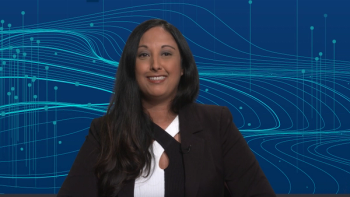
Experts in multiple myeloma management review the role of CAR T-cell therapy in patients with relapsed/refractory disease.
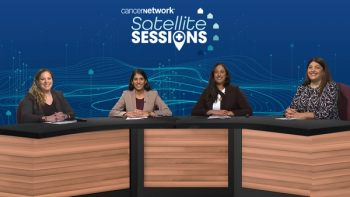
Focused discussion on mitigating and managing the adverse event profiles of bispecifics in relapsed/refractory multiple myeloma.
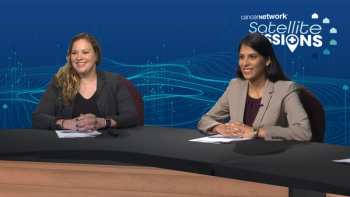
Key opinion leaders share comprehensive insight on optimal dosing and sequencing strategies in patients with relapsed/refractory multiple myeloma.

A brief conversation on the introduction and use of bispecifics and CAR T-cell therapies in satellite campuses for patients with relapsed/refractory multiple myeloma.

Switching focus to the relapsed/refractory setting, panelists reflect on the treatment armamentarium available to patients with multiple myeloma at early relapse.

Key opinion leaders in multiple myeloma consider duration of therapy and the possibility of treatment discontinuation for newly diagnosed patients.

Centering discussion on transplant ineligible multiple myeloma, expert panelists review mainstay treatment regimens and strategies in the first-line setting.

Shared insight on the respective value of consolidation therapy and collaborative tumor boards when managing patients with transplant-eligible multiple myeloma.

A brief overview of stem cell transplant’s role in the first-line treatment setting of newly diagnosed multiple myeloma.

Expert panelists review available induction therapy regimens for patients newly diagnosed with transplant-eligible multiple myeloma in the context of clinical data.

Krina Patel, MD, MSc, discusses research and initiatives that may help to mitigate disparities in patients with multiple myeloma including factors such as gender, race, and ethnicity.
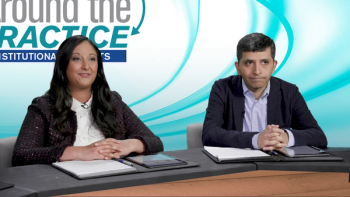
Closing out their discussion on the treatment paradigm of relapsed/refractory multiple myeloma, key opinion leaders highlight key takeaways and future directions in care.
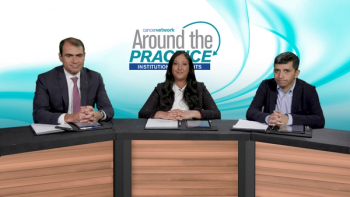
Shared insight on possible real-world applications for FcRH5-targeted bispecific antibody therapy in patients with relapsed/refractory multiple myeloma.
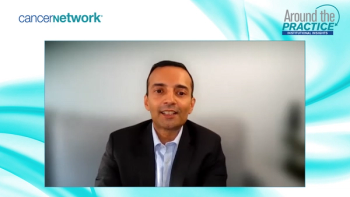
Centering discussion on the final patient case, experts review the case of a patient with relapsed/refractory multiple myeloma managed with FcRH5-targeting bispecific cevostamab.
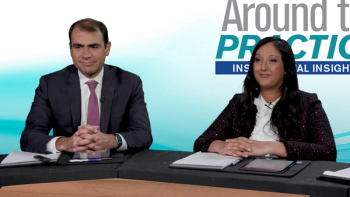
Considerations for the integration of GPRC5-targeted therapy into the real-world treatment paradigm of relapsed/refractory multiple myeloma.

Switching focus to GPRC5-targeted bispecific antibody therapy, expert hematologist-oncologists review a patient case of relapsed/refractory MM managed with talquetamab.

Closing out their module on BCMA-targeted therapy in relapsed/refractory MM, panelists highlight the optimal management of ICANS and infections.
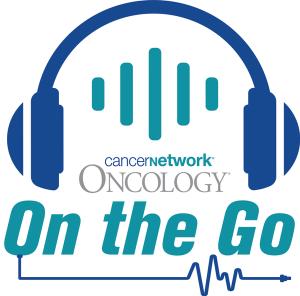
Published: December 15th 2025 | Updated:
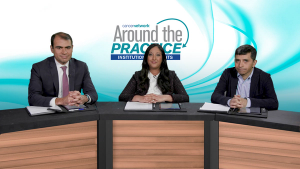
Published: January 12th 2023 | Updated:
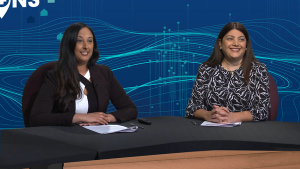
Published: May 22nd 2023 | Updated:
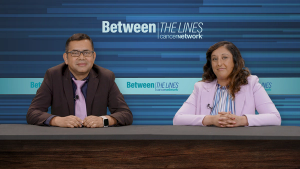
Published: November 22nd 2024 | Updated:
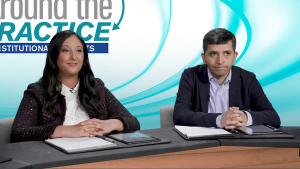
Published: January 12th 2023 | Updated:
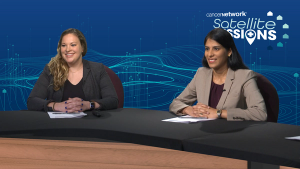
Published: June 5th 2023 | Updated: